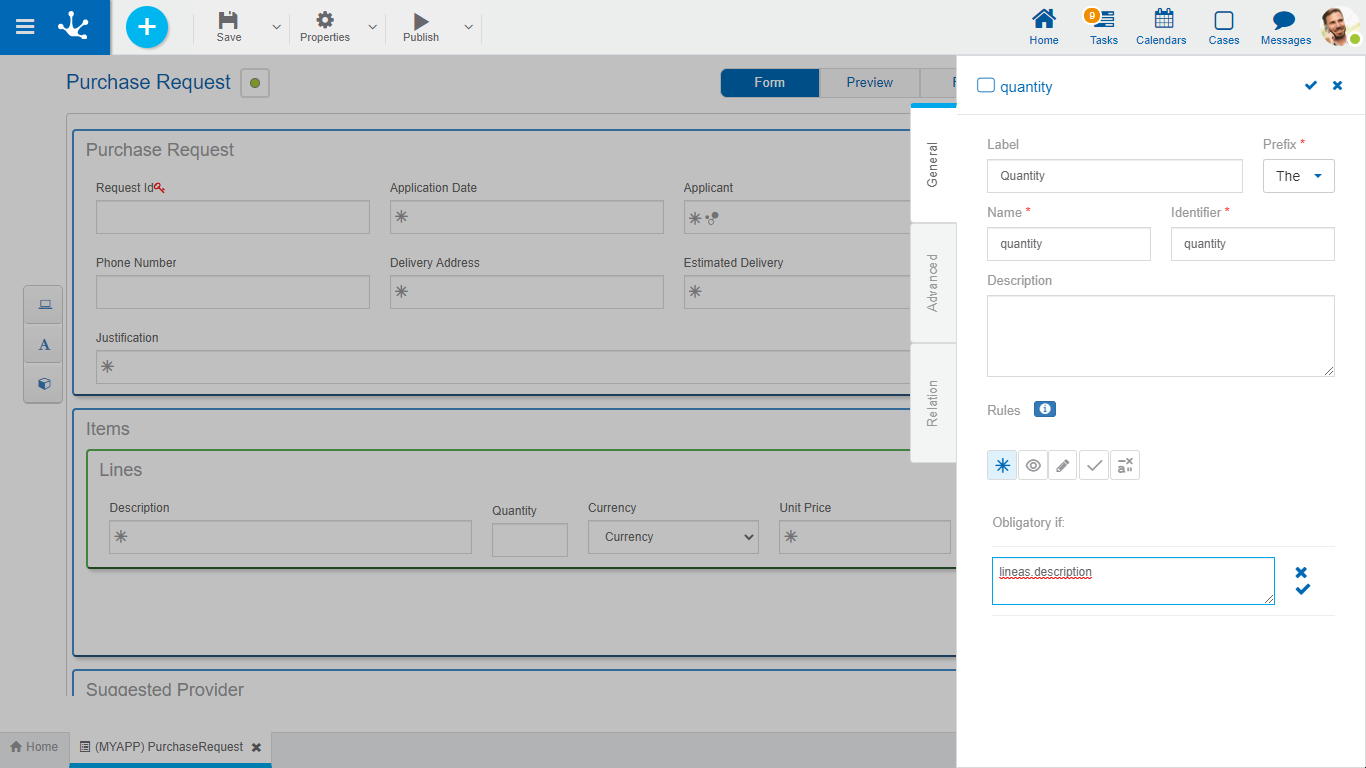Rule Elements
Embedded rules can be made up of different types of elements:
•Form fields
Form fields are used by their names. In the wizard they are identified with  on the left.
on the left.
•Group containers
Form containers are used by their names. Whenever a group container is used, indicate the field separated by a ".". In the wizard they are identified with  on the left.
on the left.
Example: PersonalData.CompanyName
•Iterative containers
Their name is displayed instead of their label. Whenever an iterative container is used, indicate the field separated by a ".". In the wizard they are identified with  on the left.
on the left.
Example: Items.Quantity
•Functions. In the wizard they are identified with  on the left.
on the left.
•Advanced rules. In the wizard they are identified with  on the left.
on the left.
•Form field relation. In the wizard they are identified with  on the left.
on the left.
•Possible values of related fields. In the wizard they are identified with  on the left.
on the left.
When modeling a related field, either to a value list, rule, or entity, the wizard displays the field, and the possible values of its relation.
In all cases, the type of data they represent and, in the case of functions or rules, the value they return is indicated on the right.
In addition to the elements proposed by the wizard, the user can include, in the rules, texts enclosed in double quotes and integers or decimals, the latter with separator "."
In the event of a syntax error, a message is displayed at the top of the properties panel, indicating the problem.

Available Operators
Operator |
Description |
Example |
|---|---|---|
== |
Compares if two operands are equal |
5 == getDay() |
+ |
Adds two operands |
5 + field3 |
- |
Substracts two operands |
price - discount |
* |
Multiplies two operands |
price * 1.21 |
/ |
Divides the first operand by the second one |
10 / 2 |
!= |
Compares if two operands are equal |
last name != "Paz" |
< |
Compares if the first operand is less than the second one |
1 < 3 |
> |
Compares if the first operand is greater than the second one |
4 > 1 |
<= |
Compares if the first operand is less or equal than the second one |
1 <= 3 |
>= |
Compares if the first operand is greater than or equal to the second one |
3 >= 3 |
% |
Calculates the division remainder of the first operand by the second one (mod) |
5 % 3, the result is 2 |
** |
Raises the first operator to the power indicated on the second operator |
2 ** 3 |
